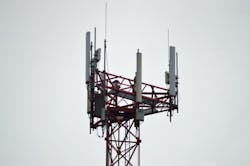March 8, 2022—Millions of vehicles in the U.S. lost some emergency and entertainment functions after AT&T became the first telecommunications company to disable its 3G network.
The shutdowns, which have been dubbed network sunsets, are happening as telecom companies work to improve their infrastructures and make room for newer, faster 5G networks. According to a report from CNBC, AT&T is the first major network to shut down its 3G servers. T-Mobile and Verizon are set to discontinue their 3G services later this year.
The sunset affects older cellphones and home security systems as well as vehicles made within the last decade that use 3G connectivity for infotainment and emergency communication systems.
"The discontinuation of the 3G networks is not expected to make any vehicles obsolete but could cause inconveniences and reduce emergency safety features that can save lives," the report says. "Resale values of the vehicles also could be impacted, as some functionality may not work as they did when the vehicles were new."
According to a report from The Drive, the shutdown will affect around 100 models from 12 different automakers built within the last decade. Ford and Lincoln have seven affected models, while General Motors said "certain models built between 2015 and 2021 will be affected" but did not specify which vehicles across its four brands were impacted.
Consumer Reports has a large list of most affected vehicles and what owners need to do in order to restore functionality in their vehicles.
“Since February of 2019, we have worked with automotive manufacturers to help them transition their connected cars to newer technology before 3G services end Feb. 22," AT&T said in an email statement per the CNBC report. "Customers have received, and will receive additional, communications as we work with them on this transition, including direct mail, bill messages, emails and text messages."
How the sunset affects a vehicle depends on how extensively an automaker has integrated 3G functionality into their lineup. Some automakers such as Ford say their impacted vehicles will see very minor changes in functionality; a statement from the Detroit-based automaker says the biggest change is that an old version of their app will no longer be supported.
Volkswagen, Audi and Stellantis are offering "third-party alternatives" for some telecom services. Audi and Volkswagen are issuing a plug-in device for a vehicle's OBD-II port that will maintain connectivity. Toyota, which is also relatively unaffected, will just let some of its services expire along with the sunset.
Other automakers are having to use more drastic -- and more expensive -- solutions to keep up. Tesla is charging $200 for owners who have a Model S built before June 2015 to update the vehicle's modem. Without the update, drivers will lose features such as live maps and traffic updates. Honda owners will have to pay upward of $900 for a hardware upgrade in order to keep some telematics features.
Consumer Reports Safety Policy Manager William Wallace in the CNBC report described the shutdown and subsequent effect on vehicles as a "slow-motion disaster," saying automakers are idly standing by or are scrambling to maintain some features.
“We’re talking about millions of vehicles that will lose features that were promised to owners, and that no longer will be delivered,” he said in the report. “In some cases, those features are safety features, things that can help them from dying or getting seriously injured after a crash.”
Wallace says automakers, telecom companies and federal lawmakers all need to act now to prevent a similar catastrophe from happening when 4G networks -- which are "widely being used in new vehicles" -- inevitably also shut down sometime in the not-too-distant future.
“Congress needs to get on this and make sure that this total disaster doesn’t happen again with 4G,” he said.
Image: Miguel Á. Padriñán

